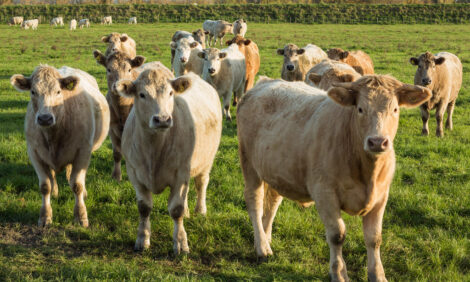



Proposals Focus On Greening The CAP
EU - This morning, European Commissioner for Agriculture and Rural Development, Dacian Ciolos presented the major reform proposals for the future of the Common Agricultural Policy (CAP) from 2014.
The draft proposal aims to strengthen the competitiveness, sustainability and permanence of agriculture throughout the EU in order to secure for European citizens a healthy and high-quality source of food, preserve the environment and develop rural areas, said Mr Ciolos.
Through the below proposals he hopes to make the CAP simpler and more efficient.
Greening element
In order to reinforce the ecological durability of the agricultural sector and enhance the efforts of farmers, the Commission is proposing to dedicate 30 per cent of direct payments to practices which enable optimal use of natural resources.
Unwelcomed by many present was the proposal for seven per cent setaside - or "ecological focus area". Justifying this, Mr Ciolos said that although the land would not be used for food production, it would still serve a huge role in the future of agriculture. He said that an example could be the planting of forests along the edges of farms to prevent further soil erosion.
Alongside other methods, Mr Ciolos acknowledged the role of permanent pasture and crop rotations. Crop rotations would involve farmers cultivating at least three crops, with none accounting for more than 70 per cent, and none less than five per cent.
Crisis management and market volatility
Mr Ciolos proposed a €3.5 billion crisis fund. This money would be used for any market crisis or for loss of confidence in consumers - it would also be available in exceptional circumstances.
Mr Ciolos demonstrated that only this year, such a fund would have been useful when the E coli crisis hit Europe.
He said that the fund would allow the European Union to react quickly and effectively to any issues.
To aid farmers in coping with market volatility, Mr Ciolos proposed that insurance systems and funds were made available as safety nets under Pillar 2, to sustain long term competitiveness.
Increased support for new entrants and young farmers
The Commissioner announced new support for young farmers, which would be available to them in the first five years of their project. €70,000 per farm will be available.
Greater flexibility for less favoured areas (LFA)
Mr Ciolos said that a minimum degree of coupled payments would be maintained for certain products in more disadvantaged areas. He said that historic payments would be completely out of use, and payments would be based on 2014 as the new year of reference.
Knowledge based agriculture
Funds will be doubled for research and innovation. "We must be able to produce more with less," said the Commissioner. He said it was important for farmers and scientists to work together to face the future challenges of food production.
Supporting smaller farmers
Increased support will be given to small groups of farmers marketing their products, or in creating new products. Support for producer groups and co-operatives is currently in place in some member states for certain products. It is proposed that this support will be expanded across all 27 countries and all products.
This will strengthen farmers market position, said the Commissioner.
In countries where no co-operative or producers organisations are in place, start up funds will be allocated.
Payment for "active" farmers
The Commissioner said that a simpler CAP would be mean that support is targeted to those farmers and structures that really need it. "We want to mobilise all productive capital in the EU," he said.
As such, only "active" farmers would be eligible for direct payments. By "active", Mr Ciolos said that farmers must make a tangible impact on production and the use of natural resources.
He said that the CAP was not in aid of supporting sofa farmers. He announced basic aid to help farmers revenues - a degressive system of €150,000, with a ceiling of €300,000.
Encouraging quality produce
Mr Ciolos proposed that extra funding would be available for producers increasing the quality of their product - through obtaining additional certification of products. He suggested an additional €3000 per holding.
Small farms
Mr Ciolos proposed that a flat rate payment between €500-1000 per farm per year, would be available to support smaller farms. However it was pointed out that the definition of a small farm varies greatly between member states and so would need to be clarified.
Initially receiving a number of criticisms from MEPs present, Mr Ciolos said that efficacy and credibility was vital for the CAP. Whilst aiming to deliver results to farmers, he said that the CAP was also under discussions with the EU regarding the CAP budget.
The proposals are now up for debate amongst member states, and a series of consultations will be held. Following this debate in the European Parliament and the Council, the approval of the different regulations and implementing acts is expected by the end of 2013, with a view to having the CAP reform in place as from 1st January 2014.
TheCattleSite News Desk


